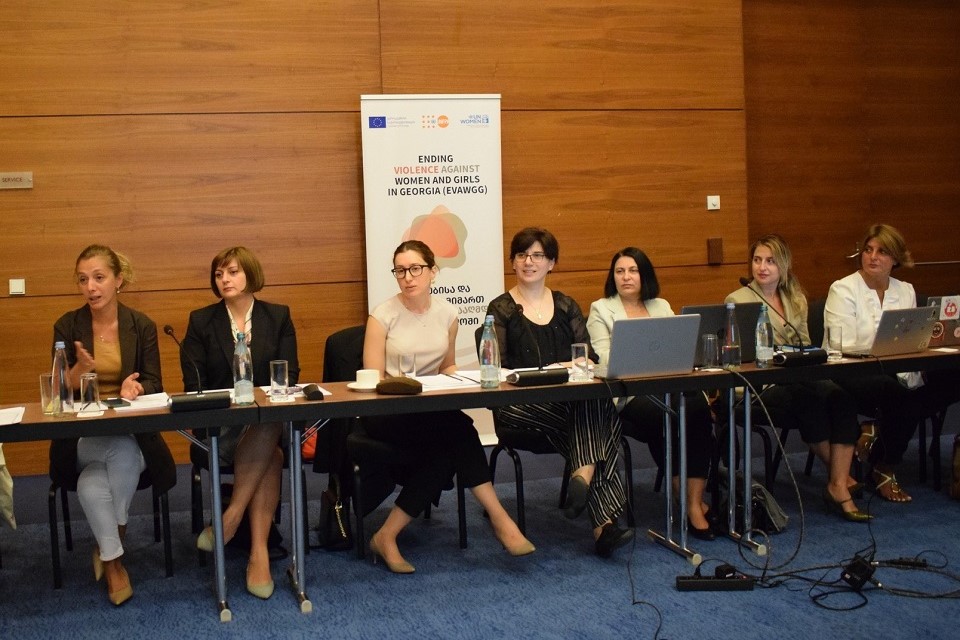Compensation for victims of violence: Innovation in action
Date:

On 2 May 2023, an 8-year-old girl, the child of a femicide victim, received compensation in the amount of GEL 10,000 from the State. The organization Rights Georgia was working on the case, which has now set a precedent for paying compensation to the victims of violence against women and domestic violence in the country.
Eliso Rukhadze, a lawyer from Rights Georgia who worked on the compensation case, recalls: “The child’s grandmother approached us for legal aid to receive compensation after the court conviction of the perpetrator entered legal force. She had to take full responsibility for raising her granddaughter after the girl’s young mother was brutally murdered by her ex-husband and the father of the child. After this tragedy, the grandmother and granddaughter continued to live in a rented apartment and experienced economic hardships.”
The Government of Georgia adopted a regulation on issuing compensation to the victims/survivors of violence against women and/or domestic violence on 9 November 2022. The relevant legislative amendment was drafted and approved with the involvement and technical support of UN Women. As a result of this amendment, a victim of violence is entitled to receive compensation from the State if the harm caused by the damage to her/his health resulting from the crime committed against her/him has not been compensated by the perpetrator. The compensation amount is determined by a court decision. The body authorized to issue the compensation is the Agency For State Care And Assistance For the (Statutory) Victims of Human trafficking, and the maximum amount of compensation is set at GEL 10,000.
Since the implementation of the regulation, to date, 11 applications for compensation have been submitted to the State Care Agency, of which nine were approved and two are still pending. In eight of the cases, compensation was issued to the children of femicide victims, and in one case, a woman who was the victim of domestic violence received compensation for damage to her health. As Irma Aladashvili, Head of the Legal Provision Department at the State Care Agency, points out, the referral rates show that public awareness on this mechanism is increasing, which should be taken as a positive development.As general statistics suggest, in five cases of femicide, the referral to the State Care Agency was made by the organization Rights Georgia on behalf of nine children of women victims. According to Eliso Rukhadze, the received compensation turned out to be not only a material support but also a moral one: “Most of the children were able to get a comprehensive education and continue their lives at a normal pace [thanks to the compensation]. However, so far, referral to the courts by the women victims is still low. In addition, the regulation does not include the possibility of issuing compensation in those cases of violence in which the perpetrator is mentally incapable and the court therefore cannot impose compensation for moral damages on them.”
The regulation on issuing compensation is an important support mechanism for the victims of violence. In addition to that, passing the relevant legislative amendments was an obligation of the Georgian authorities under the Council of Europe Convention on preventing and combating violence against women and domestic violence, and UN Women has been cooperating actively with relevant state agencies to meet this commitment. As a result of this cooperation, it was possible to analyse other compensation-related international practices. , Based on this analysis, the Ministry of Internally Displaced Persons from the Occupied Territories, Labour, Health and Social Affairs of Georgia, with the involvement of other state agencies and women’s rights NGOs, drafted the regulation on determining the procedure for and amount of the compensation.
The efforts, which were aimed at enabling the victims to request compensation, were part of the EU-supported project “Ending Violence against Women and Girls in Georgia”, implemented by UN Women and UNFPA.